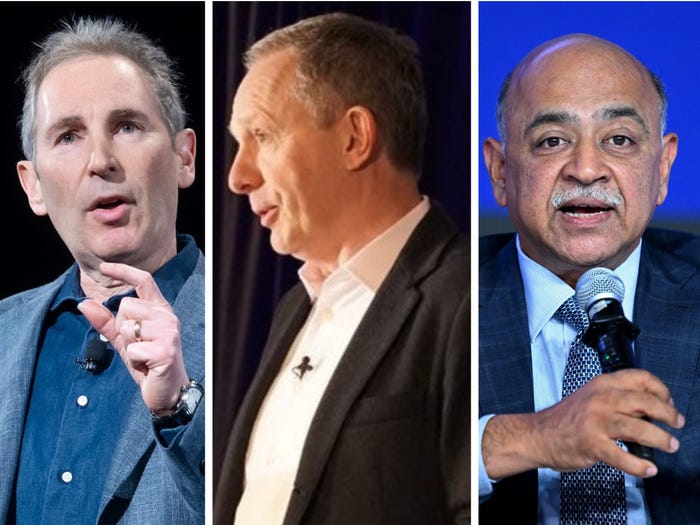UPDATE: Major corporations are signaling a shift towards artificial intelligence (AI) as the driving force behind significant job cuts. Companies like HP, IBM, and Amazon have confirmed plans to replace human workers with AI technologies, indicating a profound transformation in the workforce landscape.
In a startling announcement, HP revealed it will cut between 4,000 and 6,000 jobs by the end of 2028. This decision is directly linked to AI-driven productivity measures aimed at saving the company approximately $1 billion. The move reflects a broader trend, as a recent MIT study found that AI could potentially replace 11.7% of the US labor market.
IBM CEO Arvind Krishna stated earlier this year that hundreds of HR roles have already been replaced by AI. The company plans to cut thousands of jobs by the fourth quarter of 2025, impacting a “single-digit percentage” of its global workforce. With a focus on AI and quantum technologies, IBM’s strategic shift may lead to increased hiring in programming and sales roles.
Meanwhile, Amazon has also hinted at workforce reductions tied to AI advancements. CEO Andy Jassy acknowledged in October that the company would reduce its workforce by 14,000 positions. However, he emphasized that the cuts were not primarily driven by AI but rather by cultural shifts within the organization. Jassy stated, “The announcement… is not really AI-driven, not right now at least.”
Salesforce CEO Marc Benioff disclosed on a podcast that AI agents are being deployed in customer support, allowing the company to reduce its workforce from 9,000 to 5,000 employees. This shift reflects a major organizational transformation that has allowed Salesforce to redeploy hundreds of staff into other valuable roles.
In a similar vein, Klarna CEO Sebastian Siemiatkowski mentioned that the company can now operate effectively with half its workforce due to its AI assistant handling the workload equivalent to 853 full-time agents. This has resulted in substantial annual savings estimated at $58 million.
Lastly, Fiverr CEO Micha Kaufman announced that the freelancing platform would slash approximately 30% of its workforce, or about 250 positions, to adapt to an AI-first business model. Kaufman emphasized the urgency of adapting to AI technologies, stating, “If you don’t ensure that you sharpen your knives, you’re going to be left behind.”
As these companies navigate the integration of AI into their operations, the future of the workforce remains uncertain. A survey by the World Economic Forum indicates that 41% of companies globally are expected to reduce their workforces over the next five years due to AI. However, tech roles in big data and AI are projected to double by 2030, offering a glimmer of hope amid these layoffs.
The immediate impact of these developments is palpable, sparking widespread concern about job security and the future of work. As more companies embrace AI, the conversation around its implications for the workforce is more critical than ever. Stay tuned for further updates on this evolving story.
